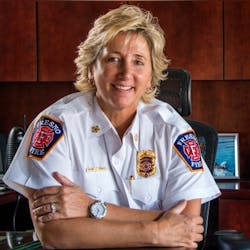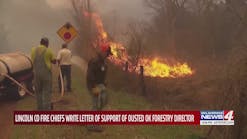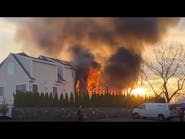March 29, 2015, marks the day of the Cortland Incident. This day dramatically transformed the Fresno, CA, Fire Department (FFD). After a member was injured seriously, the organization took a bold and courageous response to the events of the day. Sweeping measures addressed safety and operational effectiveness, and the FFD changed the behaviors and beliefs of the department.
The multi-agency Serious Accident Review Team (SART), which comprises fire service professionals, conducted an impartial investigation of the incident. The team also researched and examined the culture of long-established behaviors in the fire service that led to the trauma of that day. Their report was delivered in November 2015.
The SART report identified 169 recommendations for improvement in the FFD. Without hesitation, and as a cohesive unit, the department accepted that mission and will see it to completion in the very near future.
History shows that these types of reports frequently result in just a couple of improvements or changes or, worse, just collect dust on a shelf. Neither will be the case here.
Undoubtedly, the FFD leadership team and its members would be made uncomfortable by exposing the department to this type of disruption to the organization. However, it was decided that the SART investigation was unequivocally the right thing to do for the FFD’s personnel, the department and the fire service as a whole. Membership of all ranks didn’t disappoint.
Unprecedented forward progress
The leadership of the city of Fresno, the FFD administration and the FFD members (field and administrative personnel alike) took the SART report to heart and have invested funding toward new positions, training and equipment. Members of the department embrace this investment and contribute daily to improving their safety. To date, 100 percent of the 169 recommendations are in process, and actions that were applied resulted in 96 percent of them being completed.
The strength of teamwork that has been demonstrated by so many in the organization to implement the SART report recommendations over the past five years is significantly important. The commitment and determination to see projects through, to build and implement new training curriculum, to create a fire command algorithm and risk-management principles and to update more than 700 departmentwide policies have been nothing short of monumental.
More importantly, the FFD firefighters recognize the need to change past behaviors and beliefs, and, as such, they came together to change the culture of the department to one that is measured in actions and that is safer in daily practices. People always have been viewed as the department’s greatest asset. It is obvious that this endeavor reinforces that long-held belief.
Today, the actions and safety precautions that the members of the FFD take each day in the organization follow the philosophy that “Everyone goes home at the end of each shift, with the goal that we all have a healthy and long life to look forward to at the end of our careers.” The members of the FFD stepped up to the challenge during what likely will be the department’s greatest adversity. They have been incredibly strong through this process: They walked through a tragedy together and turned a horrific moment into a perpetual state of constructive change that continues to positively affect the fire service.
All leaders in the fire service are encouraged to review the SART report and are urged to use it as your playbook as a means to avoid a tragedy in your department.
To download the full report click here.
Fresno Fire Department Organizational Progress
The organizational progress that the Fresno Fire Department has achieved since the Cortland Incident in 2015 is impressive and multifaceted. Included in that progress:
- Development of an LODD/critical injury initial actions policy that speaks to first actions and assignments directly following a critical injury to a member
- The implementation of a labor-management initiative, including the establishment of a labor-management committee
- The training staff was enlarged by four members, the training division obtained local accredited academy status, and multiple captain, engineer and chief officer academies were convened

Kerri L. Donis
Kerri L. Donis currently services as the fire chief of the Fresno, CA, Fire Department. She is a 24-year veteran of the department and promoted up through the ranks, holding the deputy fire chief position for 10 years in all divisions: prevention, investigations, training, and operations. She is a credentialed Chief Fire Officer (CFO), Executive Fire Officer (EFO) and California State Fire Marshal Chief Officer and holds a master’s degree in organizational leadership from National University, a bachelor’s degree in exercise science from California State University, Fresno and an associate degree in fire science from Fresno City College.






